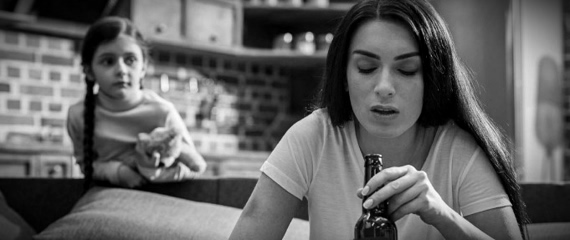
|
|
|

Children Learn Their Attitude Toward Drinking Early
How Will Your Child Drink?By BuddyT Children learn their attitudes about drinking from those around them, especially from parents or other adults, but also from their peers. Although there is scientific evidence that genetic factors play a role in how alcohol will affect your children if and when they drink, how they drink is probably more influenced by the attitude toward drinking of those the grow up around. According to the Taking With Kids web site, when parents "listen to their children's feelings and concerns, their kids feel comfortable talking with them and are more likely to stay alcohol and drug-free." Setting an Drinking ExampleAccording to the The National Clearinghouse for Alcohol and Drug Information fathers play a particularly important role in influencing children to remain alcohol-free. But the research of both of these groups indicate that warning children about the dangers of drinking and substance abuse will have little effect if parents do not set a good example. In other words, if there is drinking going on in their homes, that more than anything else is going to mold the children's attitude about their own drinking. Types of DrinkersThe following is a list of "types" of drinkers and how these attitude toward drinking in general could possibly influence how children develop their own approach to alcohol consumption. STRESS BUSTERS -- If children see a parent come home from work and immediately grab a drink and hear them say, "I need a drink after my day today!" chances are they are going to see alcohol as a way of dealing with stress and with other emotions. It sends a message that alcohol can "relieve" problems of depression, anxiety, and even fear, and the child may someday say to themselves, "Boy, I need a drink after that test!" MOOD ENHANCERS -- If a child sees a parent significantly change moods when they drink, going from a sullen or quiet mood to happiness or euphoria, the message is sent that drinking is the way to have fun. If the parent drinks to "loosen up" and have a good time, the child is probably likely to draw the conclusion that alcohol is a quick and easy way to adjust their moods. INAPROPRIATE DRINKING -- If children see adults drinking and breaking the law, in any way, they are probably going to develop the attitude that it is "okay, unless you get caught." If a child sees his parent drink at a family gathering or party and then say, "I'm okay, I can drive" the message is sent that the law can be ignored and risk-taking is okay. BINGE DRINKERS -- If there is an adult in the household who drinks to the point of getting drunk on any regular basis, the chances are the message the children are going to receive is that the reason you drink is to get drunk. If they do not see moderation practiced by their parents, then they are probably going to develop an similar attitude, and come to the conclusion that getting drunk is acceptable behavior. If there is an alcoholic in the house, the only drinking pattern the children see is "alcoholic drinking." They may not be alcoholics themselves, but they may drink "alcoholically" because that is how they learned it. ABSTAINERS -- If children grow up in homes where no alcohol is consumed and they are taught that drinking is not appropriate behavior, then it is likely that they too will remain non-drinkers. Research indicates this is especially true if children have developed an active spiritual life. Although abstaining parents are not a guarantee that children will also not drink, the message the child receives is that drinking is not "necessary" to have fun. A New MessageAccording to the U.S. Department of Health National Household Survey on Drug Abuse, about 10.4 million drinkers were between the age of 12-20 years old. Of these, 5.1 million were binge drinkers, including 2.3 million heavy drinkers. But the survey also showed that most young people were non-drinkers and most remain abstainers when they enter college. The majority of today's college students are not binge drinkers, but those who are heavy drinkers tend to believe that "everybody does it" and they overestimate the extent of binge drinking on their campus. RELATED: How To Help Someone With A Drinking Problem Many of them got the message the "everybody does it" from their parents. What college, healthcare and law enforcement officials are attempting to do with their public awareness campaigns is to send these young people another message that says "most" of their peers do not consider getting drunk as appropriate behavior. They hope it will influence them to take a second look at how they "learned" to drink.
Learn more about Family Support.
| 




|
Learn MoreFind out more about alcoholism and how it can affect not only the drinker, but everyone around him/her from BuddyT, your guide to alcoholism since 1997. |
Online MeetingsParticipate in scheduled online meetings from your computer or mobile device or fellowship in the 24/7 open chat rooms at your convenience. |

Stay Up-to-DateGet the latest research and findings, statistics and scientific developments related to alcoholism, substance abuse, and treatment options. |
| © 2020 General Internet |